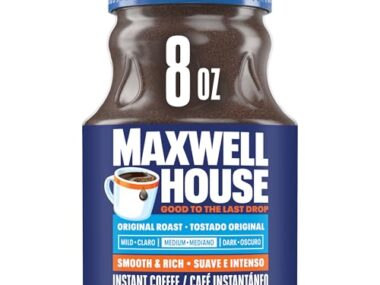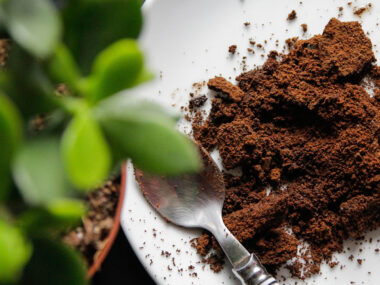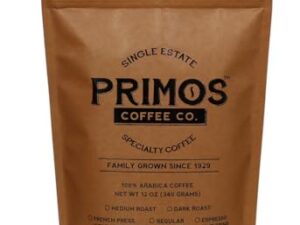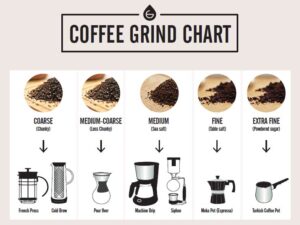The healthiest coffee is black coffee, enjoyed plain. It provides antioxidants, supports metabolism, and contains zero extra calories. Learn which is the healthiest coffee to drink daily.
Coffee is a beloved beverage worldwide, waking us up and fueling our day. But as health concerns rise, many wonder about the healthiest way to enjoy it. Is your coffee choice good for you, or could it be better? Different brewing methods and add-ins can affect health benefits.
Understanding these differences helps you make healthier choices. Exploring various coffee types, from espresso to cold brew, reveals unique health advantages. This guide uncovers the healthiest coffee options. We’ll dive into what makes some coffees better for health than others. Join us as we explore how to sip smarter and enjoy coffee’s benefits fully.

Credit: organicallybecca.com
Types Of Coffee
Coffee is a beloved beverage enjoyed worldwide. Many wonder which type is the healthiest. There are various kinds of coffee, each offering unique flavors and health benefits. Understanding the types can help you choose the healthiest option for your lifestyle. This post explores different brewing methods and coffee varieties to help you make an informed choice.
Brewing Methods
Brewing coffee can be done in many ways, each affecting its health benefits. Different methods extract varying levels of caffeine and antioxidants. Espresso is a popular choice, offering a bold taste and high caffeine content. It is made by forcing hot water through finely-ground coffee. This method retains most of the coffee’s nutrients.
French Press is another method, known for its rich flavor. It involves steeping coffee grounds in hot water before pressing them out. This method preserves the oils and antioxidants, providing health benefits.
Drip Coffee is common in households. It uses a filter to brew coffee slowly. This method reduces oils and may lower cholesterol levels. However, it might also decrease some antioxidants.
- Espresso: Retains nutrients, high caffeine.
- French Press: Rich flavor, preserves oils.
- Drip Coffee: Lowers cholesterol, less antioxidants.
Coffee Varieties
Coffee comes from different plants, impacting taste and health. Arabica is the most popular variety. It has a smooth taste and less caffeine. Arabica beans are high in antioxidants, beneficial for health.
Robusta is another variety with a stronger flavor. It contains more caffeine than Arabica. Robusta beans also have higher levels of antioxidants, making them a healthy choice.
Liberica offers a unique flavor, often fruity. It is less common but still provides health benefits. Liberica beans have a moderate amount of antioxidants and caffeine.
| Variety | Taste | Caffeine | Antioxidants |
|---|---|---|---|
| Arabica | Smooth | Less | High |
| Robusta | Strong | More | Higher |
| Liberica | Fruity | Moderate | Moderate |
Nutritional Benefits
Choosing the healthiest coffee can be a delightful journey for coffee lovers. Coffee isn’t just a tasty drink; it’s also packed with nutritional benefits. Understanding these benefits can help you pick the right type of coffee for your health. Coffee contains a variety of nutrients that can support your body’s needs. Among them, vitamins, minerals, and antioxidants play a crucial role. Let’s explore these components in detail.
Vitamins And Minerals
Coffee offers a surprising amount of vitamins and minerals that can benefit your health. Riboflavin (Vitamin B2) is one of the most prominent vitamins found in coffee. It helps in energy production and supports cellular function. Pantothenic Acid (Vitamin B5) is another essential vitamin. It is crucial for the synthesis of coenzyme A, a compound involved in metabolism.
Minerals are also present in coffee. Magnesium plays a role in muscle and nerve function. It also helps in maintaining a steady heartbeat. Potassium is essential for heart health and assists in regulating blood pressure.
Below is a simple table showing the vitamins and minerals in a standard cup of coffee:
| Vitamin/Mineral | Amount per Cup |
|---|---|
| Riboflavin (B2) | 0.2 mg |
| Pantothenic Acid (B5) | 0.6 mg |
| Magnesium | 7 mg |
| Potassium | 116 mg |
Antioxidant Properties
One of the most significant health benefits of coffee is its antioxidant properties. Antioxidants help to fight free radicals in the body. These free radicals can cause damage to cells and lead to various diseases.
Chlorogenic acid is a well-known antioxidant found in coffee. It assists in reducing inflammation and may help in weight management. Another antioxidant, quinine, gives coffee its bitter taste and supports overall health.
Here are some advantages of coffee’s antioxidants:
- They help reduce the risk of chronic diseases.
- They support heart health and boost immunity.
- They aid in protecting against certain types of cancer.
- They may improve brain function and longevity.
While enjoying your coffee, you’re also benefiting from these protective compounds. This makes coffee not just a refreshing drink but a healthy choice too.
Caffeine Content
Coffee is a beloved drink worldwide, enjoyed for its rich flavor and stimulating effects. But with so many types, choosing the healthiest coffee can be confusing. Caffeine content is a significant factor in determining coffee’s health benefits. Different coffee varieties have varying caffeine levels that can affect your health in unique ways. Understanding these differences can help you make an informed choice.
Effects On Health
Coffee offers numerous health benefits that make it a popular choice among many. It is rich in antioxidants that help fight free radicals in the body. These antioxidants can reduce inflammation and lower the risk of chronic diseases. Moderate coffee consumption has been linked to a reduced risk of Parkinson’s disease and Alzheimer’s. It may also aid in preventing liver cirrhosis and liver cancer.
However, excessive coffee consumption can lead to health issues. It can cause insomnia, jitteriness, and increased heart rate. Individuals sensitive to caffeine might experience anxiety or digestive problems. It’s crucial to balance coffee intake to enjoy its benefits without adverse effects.
Here’s a brief look at the positive and negative effects of coffee:
- Boosts energy and focus
- Contains essential nutrients
- Improves mood
- May increase anxiety in large amounts
- Can disrupt sleep patterns
Recommended Intake
The recommended intake of coffee varies depending on individual tolerance and health conditions. For most adults, consuming up to 400 milligrams of caffeine per day is considered safe. This is roughly equivalent to four cups of brewed coffee. Pregnant women and those with specific health issues should limit their intake to avoid potential risks.
Below is a guideline for safe coffee consumption based on caffeine levels:
| Type of Coffee | Caffeine Content (per 8 oz) | Recommended Cups Per Day |
|---|---|---|
| Regular Brewed Coffee | 95 mg | Up to 4 cups |
| Espresso | 63 mg (per shot) | Up to 5 shots |
| Instant Coffee | 60 mg | Up to 5 cups |
Listening to your body is key. If you feel jittery or have trouble sleeping, it might be time to cut back. Always consider your personal health needs when deciding on your coffee intake.

Credit: www.republicaorganic.com.au
Additives And Alternatives
Coffee is loved by many around the world. But, not all coffee is the same. Some types are healthier than others. Choosing the right coffee can make a difference in your diet. Additives and alternatives play a key role. They can enhance or harm the health benefits of coffee. Understanding these can help you make a better choice. Let’s dive into the healthiest coffee options.
Sugar And Creamers
Many people add sugar and creamers to their coffee. These additives can change the healthiness of your drink. Adding sugar increases calorie intake. It can lead to weight gain and health problems. Creamers often contain artificial flavors and unhealthy fats. They may taste good but aren’t always healthy.
Consider these tips to reduce sugar and creamer intake:
- Use natural sweeteners like honey or maple syrup.
- Choose low-fat milk instead of heavy cream.
- Try cinnamon or vanilla for flavor without extra calories.
Here’s a simple comparison:
| Option | Calories per Serving | Health Impact |
|---|---|---|
| Sugar | 16 | Increases blood sugar |
| Regular Creamer | 30 | Adds unhealthy fats |
| Honey | 21 | Natural sweetener |
| Low-fat Milk | 12 | Contains calcium |
Plant-based Options
Plant-based options are becoming popular. They offer healthier alternatives to regular creamers. Almond milk and soy milk are low in calories. They are good sources of vitamins and minerals. Oat milk is another great choice. It is creamy and has more fiber than other options.
Benefits of plant-based options include:
- Lower in saturated fats than dairy.
- Rich in vitamins and minerals.
- Suitable for lactose-intolerant individuals.
Consider these popular plant-based choices:
| Milk Type | Calories per Cup | Unique Benefits |
|---|---|---|
| Almond Milk | 30-40 | Low in calories |
| Soy Milk | 80 | High in protein |
| Oat Milk | 120 | High in fiber |
Choosing plant-based options can make your coffee healthier. They are tasty and better for your body.
Organic Vs. Conventional
Coffee lovers often wonder about the healthiest choice between organic and conventional coffee. Coffee is a widely consumed beverage, cherished for its rich aroma and invigorating taste. Choosing the healthiest coffee involves understanding the differences between organic and conventional options. Organic coffee is grown without synthetic chemicals, while conventional coffee might use pesticides and fertilizers. This distinction impacts not only health but also flavor and environmental sustainability. Exploring these differences helps in making an informed choice.
Pesticide Residue
Many people prefer organic coffee due to concerns about pesticide residue. Conventional coffee farming often uses chemical pesticides to protect crops from pests and diseases. These chemicals can leave traces that might end up in the coffee we drink. Health-conscious individuals worry about the potential effects of consuming these residues. Organic coffee is grown without synthetic pesticides, reducing the risk of chemical residue. Choosing organic coffee is seen as a way to minimize exposure to potentially harmful substances.
To better understand the differences, here’s a simple comparison:
| Type of Coffee | Pesticide Use | Residue Risk |
|---|---|---|
| Organic Coffee | None | Low |
| Conventional Coffee | Yes | Higher |
Choosing organic coffee can be a healthier option. It offers peace of mind regarding pesticide exposure. People looking for cleaner coffee often opt for organic varieties.
Flavor Differences
Flavor plays a significant role in choosing between organic and conventional coffee. Organic coffee is often praised for its pure and natural taste. The absence of synthetic chemicals allows the coffee’s natural flavors to shine. Many coffee enthusiasts claim that organic coffee has a smoother and richer taste. Conventional coffee, on the other hand, might have altered flavors due to chemical use.
Here are some flavor aspects to consider:
- Purity: Organic coffee is free from synthetic chemicals, enhancing flavor purity.
- Richness: Organic coffee often has a fuller and more complex taste.
- Consistency: Conventional coffee might vary in flavor due to chemical treatments.
Choosing organic coffee can be a more enjoyable experience for those who appreciate natural flavors. It often offers a unique and authentic taste profile.
Cold Brew Vs. Hot Brew
Coffee is a beloved beverage worldwide, cherished for its rich flavors and energizing effects. But many people wonder which type of coffee is the healthiest option. One common debate is between cold brew and hot brew coffee. Each has unique characteristics that can affect health. Understanding these differences can help coffee lovers make an informed choice. Let’s explore the acidity levels and taste profiles of these two popular brewing methods.
Acidity Levels
Acidity can greatly impact both the taste and health of coffee. Cold brew coffee is typically known for its lower acidity compared to hot brew. This is because it is made by steeping coffee grounds in cold water for a prolonged period. The cold extraction process results in a smoother, less acidic flavor. This makes cold brew a better option for those with sensitive stomachs.
In contrast, hot brew coffee is often more acidic. The hot water extracts compounds from the coffee beans more quickly. This can result in a brighter, tangier flavor profile. But it may cause discomfort for some people.
| Brew Type | Acidity Level |
|---|---|
| Cold Brew | Lower Acidity |
| Hot Brew | Higher Acidity |
Choosing between these depends on personal preference. And how your body reacts to acidity.
Taste Profiles
The taste of coffee can vary significantly between cold brew and hot brew. Cold brew coffee is often described as having a smooth and mellow flavor. It lacks the bitter notes found in hot brew. This smoothness comes from the slow extraction process. The cold water doesn’t release the bitter compounds as quickly.
Hot brew coffee, on the other hand, is known for its robust and rich taste. The hot water brings out the aromatic oils and acids. These create a complex and full-bodied flavor. Some people love the bright and bold notes that come with hot brew.
- Cold Brew: Smooth, mellow, less bitter
- Hot Brew: Rich, robust, complex
Personal preference plays a big role in choosing the right coffee. Some enjoy the smoothness of cold brew, while others prefer the boldness of hot brew. Experimenting with both can help you find your ideal cup.
Specialty Coffees
Coffee is more than just a drink; it’s an experience. Many people worldwide start their day with this beloved beverage. But with so many options, choosing the healthiest coffee can be a challenge. Specialty coffees have gained popularity for their rich flavors and health benefits. These coffees are often grown in specific regions and harvested with care. This ensures not only a delightful taste but also a wholesome choice for consumers.
Single-origin Beans
Single-origin beans are sourced from one location, like a specific country or region. This gives these coffees unique flavors and aromas. Some coffee lovers prefer these beans for their distinct taste profiles. They allow drinkers to experience the essence of their origin.
Here are some benefits of single-origin beans:
- Unique Taste: Each cup has a specific flavor linked to its region.
- Transparency: Knowing the source of your beans builds trust.
- Quality Assurance: Often high-quality due to focused production.
- Support for Farmers: Direct buying supports local farmers.
Many coffee enthusiasts claim that single-origin beans offer a purer coffee experience. The flavors are not mixed with beans from other regions. This purity can make a simple cup of coffee feel like a journey around the world. These beans are often roasted to perfection to highlight their natural flavors.
Ethically Sourced
Ethically sourced coffee ensures fair practices in the coffee industry. It’s about supporting farmers and treating them fairly. This includes paying fair wages and ensuring safe working conditions. Ethically sourced coffee also focuses on sustainability. This means caring for the environment during the coffee production process.
Benefits of choosing ethically sourced coffee include:
| Benefit | Description |
|---|---|
| Fair Trade | Farmers receive fair compensation for their work. |
| Environmental Care | Practices that protect nature and reduce harm. |
| Community Support | Investing in local communities and improving lives. |
| Quality Assurance | Often leads to better quality coffee. |
Choosing ethically sourced coffee is about making a positive impact. It ensures that the cup of coffee you enjoy contributes to a better world. Many companies now label their coffee as ethically sourced. This makes it easier for consumers to make informed choices. By supporting these practices, you enjoy a delicious coffee while caring for people and the planet.

Credit: www.pinterest.com
Health Risks
Choosing the healthiest coffee can be challenging. Coffee offers various health benefits. But, certain types of coffee may pose health risks. Understanding these risks is essential. This helps in making informed decisions. Health risks associated with coffee vary based on consumption levels and individual health conditions. While coffee can be a source of antioxidants, excessive intake may lead to health issues. It’s important to balance coffee intake for optimal health benefits.
Excessive Consumption
Consuming too much coffee can lead to several health problems. High caffeine intake might cause insomnia, nervousness, and restlessness. Some people experience stomach upset and nausea. Others may feel an increased heart rate. It’s crucial to be mindful of your daily coffee intake. Here are some potential effects of excessive coffee consumption:
- Increased anxiety levels
- Digestive issues and stomach upset
- Increased heart rate
- Difficulty sleeping or insomnia
Moderation is key to enjoying coffee without adverse effects. Most health experts recommend limiting caffeine to 400 milligrams per day. This is roughly four 8-ounce cups of coffee. Exceeding this limit could lead to unwanted side effects. Always pay attention to your body’s response to caffeine. Adjust your intake accordingly.
Heart Health Concerns
Heart health is a significant concern for many coffee drinkers. Caffeine affects heart rate and blood pressure. For some, coffee can raise blood pressure temporarily. Those with heart conditions should be cautious. Regular monitoring of heart health is advisable. Here’s a simple table to summarize the effects on heart health:
| Caffeine Effect | Heart Impact |
|---|---|
| Increased Heart Rate | May cause palpitations |
| Raised Blood Pressure | Potential risk for hypertension |
Choosing decaffeinated options can be a safer choice for some. It’s important to consult with a healthcare provider. Especially if there are existing heart conditions. Balanced coffee consumption can still be part of a healthy lifestyle. Always consider personal health needs and consult professionals when necessary.
Frequently Asked Questions
What Type Of Coffee Is The Healthiest To Drink?
Black coffee is the healthiest option. It contains no added sugars or fats and is rich in antioxidants. Drinking it in moderation can boost metabolism and improve focus. Opt for organic coffee to avoid harmful pesticides.
Which Type Of Coffee Is Better For Health?
Black coffee is generally better for health. It contains no added sugars or fats, thus minimizing calorie intake. Rich in antioxidants, it may lower the risk of certain diseases. Drinking in moderation can boost metabolism and enhance cognitive function. Always consult a healthcare professional for personalized advice.
What Is The Most Unhealthy Coffee?
The most unhealthy coffee is often a large, sugary coffee drink with whipped cream and flavored syrups. These beverages can contain high levels of sugar and calories, leading to health issues like weight gain and increased blood sugar levels. Opt for black coffee or use minimal sugar and milk for a healthier choice.
What Is A Healthier Option To Coffee?
Green tea offers a healthier alternative to coffee. It contains less caffeine and is rich in antioxidants. Herbal teas like chamomile or peppermint provide calming effects without caffeine. Matcha, a powdered green tea, boosts metabolism and focus. Consider trying chicory root coffee, which is caffeine-free and supports digestive health.
Conclusion
Choosing the healthiest coffee can be simple. Focus on quality and moderation. Freshly brewed coffee offers antioxidants and health benefits. Select organic and low-acid options for gentler effects. Avoid excess sugar and cream. These can add unwanted calories. Black coffee is a smart choice.
It’s rich in flavor and nutrients. Explore different brewing methods. Find what suits your taste best. Remember, balance is key to a healthier coffee habit. Enjoy your coffee journey. Feel refreshed and energized with each cup. Your health deserves the best choices.








